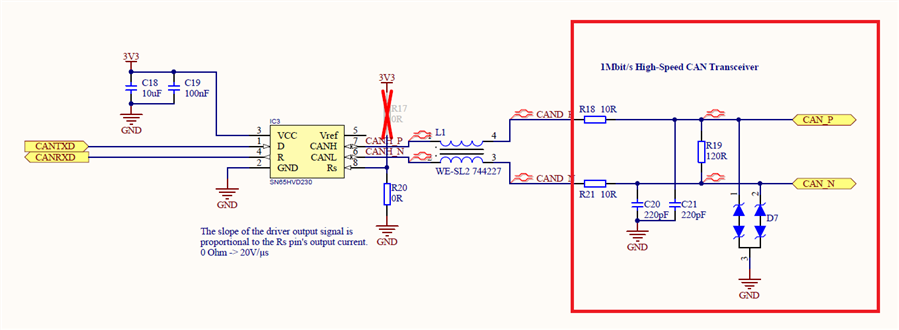HI! I've started working with a board already developed and needed to implement CAN protocol on a non-TI MCU. I've tested first an internal loop to get the libraries working and then, when I tried to output and transmit on CANP and CANH differential signals, I couldn't get anything. So I started testing the modules. Here's the schematic implemented:
I measured CANTXD and CANRXD signals outside the microcontroller, and are correct, and are getting correctly to pins 1 and 4 of the SN65HVD230:
Then I measured the device's differential output at pins 6 and 7 and this is what I got:
I measured the Common Mode Line Filter's output too, but still, SN65HVD230's output doesn't seem right to me. I would appreciate any tips or ideas regarding what to check here, so I can keep testing this module.
Thanks!


